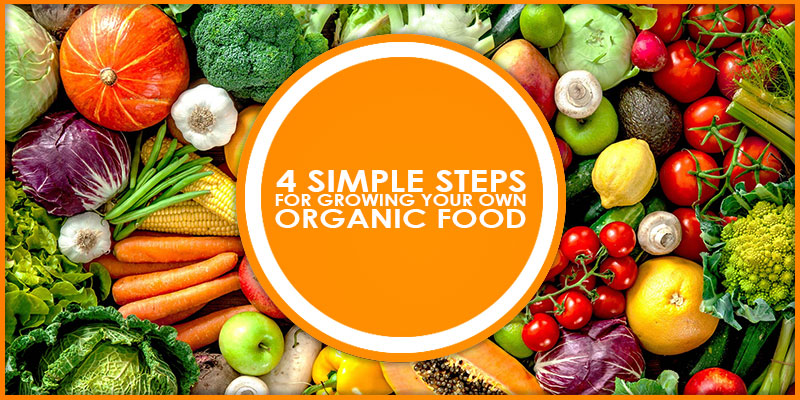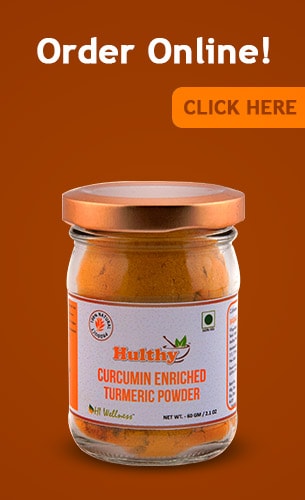4 Simple Steps for Growing Your Own Organic Food

Reasons
There are a lot of good reasons to grow your organic food. In fact, there is a lot of increasingly disturbing evidence that presents equally good reasons not to buy non-organic supermarket produce. For example, one recent study of pesticide exposure in children in a major U.S. metropolitan area found that traces of garden chemicals were found in 99 per cent of the 110 children who were tested. Further, according to the Environmental Protection Agency, 90% of fungicides, 60% of herbicides and 30% of insecticides are considered carcinogenic.
On a happier note, growing your organic food is not only healthier, but it can save you a lot of money. Produce departments are taking full advantage of an educated public’s desire for organic food, a fact reflected in the vast difference in price. In addition to reducing your grocery bill, by transforming your lawn into a garden, you’ll also save money on your water bill. Trees and shrubs require anywhere from two and a half to four times less water than maintaining a lawn.
Simple Tricks to Start Off
As the person in charge of the production of your herbs, fruits and vegetables, you can replace chemical pesticides with natural alternatives. One such option is a little cayenne pepper or horseradish mixed with garlic paste added to a gallon of water. It’s essential to test the strength on a leaf or two because if it’s too loud, it can burn the plant. However, it’s remarkably effective as a pest repellent.
You’ll also be able to decide what kind of soil you want to use to grow your food. Different plants thrive in different types of land. For example, some, such as flowers and seasonal vegetables prefer peat-free soil, while blueberries require lime-free compost. Fruit trees benefit most from a soil based mix that releases nutrients slowly due to their long lives.
Making your Organic Soil
A rich organic soil minus any chemicals are one of the primary requirements of organic farming. Compost can make an enriched organic soil. One can use different types of substances like fallen leaves, grass clippings, old fruits and vegetable shavings. Be careful not to add fat, oil, grease, faeces or dry wood chips.
Correct Space
Choosing the best garden space is very important. A sunny spot with good drainage is ideal. Vegetables grow best when they get 6-8 hours of sun and a little shade during the afternoon. Space should also have the ease of watering the plants.
Choosing the Right Plants for Organic Farming
It is of utmost importance to select the correct types of plants that will thrive well in ecological conditions so that they can adjust well in those micro conditions. Buy seedlings that have been grown without the use of any chemical pesticides and fertilizers. For the cold weather, one can choose peas, spinach, carrots, radishes and lettuce while for warm weather plants like tomatoes, basil, zucchini and green peas can be grown.
Mulching
No matter what kind of soil composition you choose, mulching is an essential factor in preparing it for planting. Mulching is the process of enriching the soil. Two benefits of mulching are weed reduction and water conservation. Organic mulches are commonly made from decomposing plant materials. Many people set up a worm farm to provide natural compost for mulching. Worms are also able to detoxify soil of due to their ability to break down substances, including heavy metals like cadmium and lead. Experts recommend not using live green materials rather than those already in an advanced state of decomposition because they can leach needed nitrogen from the soil. Proper mulching requires the soil to be covered with up to three inches of material to achieve the maximum benefits. However, the mulch should not cover the plant’s base, but only the root zones.
Watering of Plants
One of the best time to water plants is in the mornings, for the simple reason that it is less windy, so most of the water is absorbed, and it does not get evaporated. Watering the plants in the evenings make them more prone to various diseases. Make sure one waters the roots and not the greens. Plants should not be overflooded. A drip type of watering is ideal so that the water is soaked in slowly. The water should be near the air temperature to avoid shocking the tender plants.
Protection Without Pesticides
A garden with diversity ensures that pests are limited by limiting the amount of a single type of plant available for attack. Natural predators like frogs, toads, lizards etc. can be fostered in the garden. Some insects like ladybugs are also beneficial in preventing attack by harmful insects. Horticultural oils, garlic and hot pepper sprays in small amounts can also be used to discourage the pests.
Eating right out of the garden is ideal for good health and high spirits. The best way is to have your organic garden. Happy gardening!


